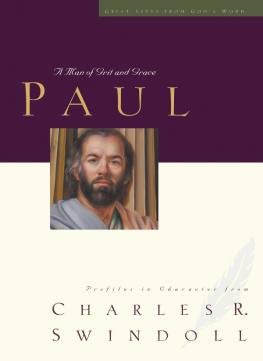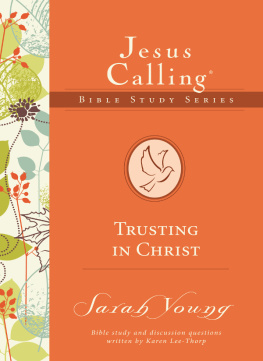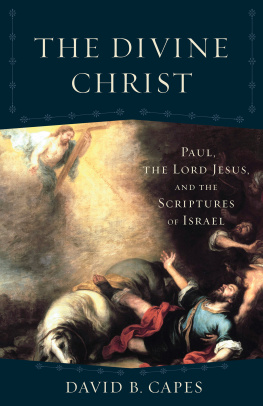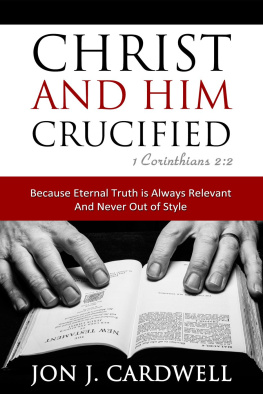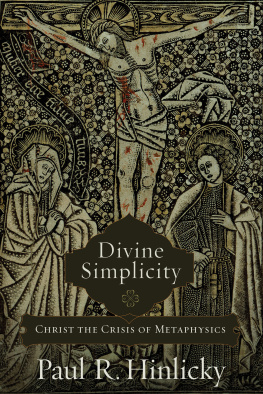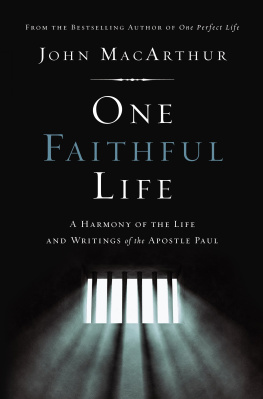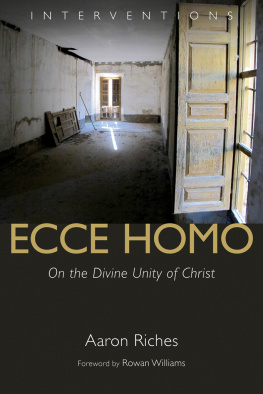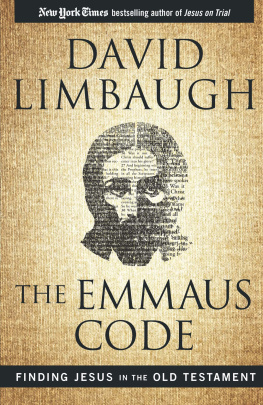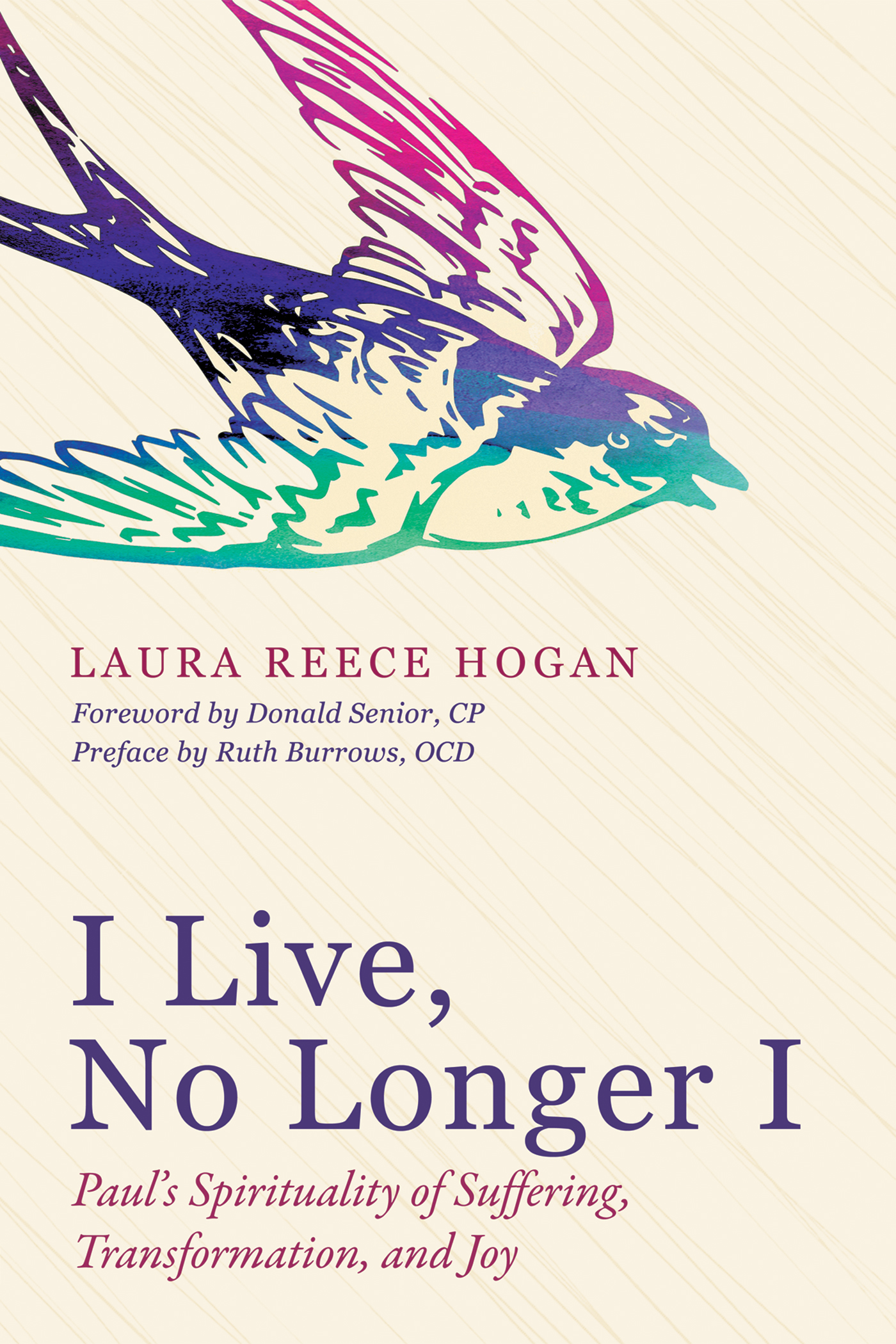To all the little birds, now and to come.
and be a mighty warrior of the heart.
I have been crucified with Christ; yet I live, no longer I, but Christ lives in me; insofar as I now live in the flesh, I live by faith in the Son of God who has loved me and given himself up for me.
We know that all things work for good for those who love God, who are called according to his purpose.
Just one thing: forgetting what lies behind but straining forward to what lies ahead, I continue my pursuit toward the goal, the prize of Gods upward calling, in Christ Jesus.
Foreword
Donald Senior, CP
F or many years I have had the privilege of serving as the New Testament book review editor for The Bible Today , a journal that appears six times a year and focuses exclusively on biblical topics. The review articles I compose consist of brief evaluations of some twenty new books for each issue. Every time the deadline approaches to write my round-up of reviews, I worry that there might not be enough good books for the review article. I have always worried in vain. The production of books on the Bible and specifically the New Testament never seems to falter.
A heavy portion of these new publications focuses on the Pauline writings. The list of new titles over the years charts the prevailing interests of modern biblical scholarship. As a result, the majority of publications deal with historical, literary, and doctrinal issues triggered by Pauls letters. More traditional, historically inclined studies, for example, take up such issues as what we can know about Pauls biography: When and where was he born? What is the chronological sequence of the various letters he wrote? Under what circumstances did he write his letters? Was he a Roman citizen, as the Acts of the Apostles claims? And, if so, how did he gain such citizenship? What influence did his apparent origin in Tarsus, a Greco-Roman university town at the time, have on Paul? What was the nature of his training as a Pharisee and interpreter of the Law? And how should we track Pauls various missionary journeys? How many miles did Paul and his companions travel? And how did Paul meet his death? Was it during his house imprisonment in Rome as narrated in the conclusion to the Acts of the Apostles? Or was Paul eventually released from prison and was able to travel to Spain as he longed to do? A more recent focus on these and other basic historical questions is the issue of the historical reliability of the Acts of the Apostles, with most scholars preferring to give more weight to Pauls own testimony in his letters when the chronology and events narrated about Paul in Acts seem to differ from the description in Pauls own writings.
To these more traditional historical inquiries has been added in more recent years a focus on literary analysis of Pauls letters. To what degree do the Pauline letters follow the canons of ancient letter writing and how do they differ? Did Paul write these letters or dictate them? What are the thought structures of individual letters? How much was Paul influenced by the norms of ancient rhetoric in his writings? Are some of Pauls letters now present in the New Testament actually combinations of more than one letter, such as is often presumed with Pauls Second Letter to the Corinthians? What elements of Pauls letters are quotations from preexisting creedal formulas or early Christian hymns? And a perennially debated issueare all of the letters attributed to Paul actually written by him or by later writers evoking his name? Here the focus is on the Pastoral Letters and Colossians and Ephesians.
Doctrinal or theological concerns also command a large portion of current publications on Paul. Topics such as what is the significance of Pauls conversion experienceand is it, in fact, accurately described as a conversion or, as Paul seems to label it in Galatians :, a call situated within the broader framework of his Jewish heritage? Of course, an abiding doctrinal question is the centrality of the notion of justification by faith alone as being the heart of Pauls theological messagea perspective maintained strongly by traditional Protestant interpretation but now questioned by others who see it as one among many central themes in Pauls repertoire. And this issue, in turn, raises the question of Pauls view of the Jewish Law and its validity in the face of the Christ event. To what degree, in fact, is Pauls theology influenced by Jewish tradition? Does he have anything in common with the sectarian Jewish community at Qumran that was behind the Dead Sea Scrolls, a Jewish stream of tradition virtually contemporary with Paul? And is there also influence coming from Greco-Roman religions and moral philosophy? Barrels of ink have been employed on particular theological or ethical issues in Paul: his Christology, his ethics, his use of tradition, his ecclesiology, his view of sexuality, his eschatology, etc. An important underlying question here, too, is to what degree did Paul create Christian doctrine as distinct from being the recipient and interpreter of it? Should Paul be considered as, in fact, the true founder of Christianity? To what degree was Paul and his theology shaped by the teachings and example of Christ?
More recent scholarship has been engaged in the question of a new perspective on Paul. Triggered by the writings of such great scholars as Krister Stendahl and Ed Sanders, a prevailing question has to do with Pauls relationship to Judaism. A more traditional view that saw a sharp cleavage between the Christian Paul and his life in Judaism has been called into question. Did Paul, in fact, reject his Jewish heritage in the wake of his encounter with Christ? Or, as Krister Stendahl had observed, was Pauls inaugural experience to be understood as a call or new vocation within the stream of his Jewish experience triggered by his faith in Christ as the promised Messiah of Israel. In this view Pauls mission to the Gentiles was not a rejection of his Jewish heritage but an expansion in his realization of Gods plan for the salvation of the world. Sanders and others have also called for a rehabilitation of Christian understanding of ancientand modernJudaisma call fueled in part by the tragedy of the Holocaust. Judaism is not to be thought of as a legalistic religion with its burdens of guilt and minute casuistry as it is often caricatured, but rather, in Sanders phrase, as a religion of covenantal nomismthat is, observance of the Jewish law was a faithful response to Gods gift or grace of the Covenant. In Sanders view, Paul did not differ from Judaism because it was legalistic, as some have presumed, but because of Pauls view that Christ was the promised Messiah and Son of Goda view not shared by his contemporary Jewish peers.
This is a far from complete scan of recent scholarship but it does illustrate the kind of questions that most scholars have posed when turning to the Pauline letters. Against that backdrop, the graceful and inspiring work of Laura Reece Hogan takes a different path. Most of the prevailing scholarship on Paul is focused on understanding what Paul meant in his writings and how his original audiences might have understood them. The focus of this work, by contrast, is on what Pauls theology means now . While drawing on much of this accumulated Pauline scholarship, Lauras interest is in the meaning of Pauls theology for contemporary Christian spirituality and life. The spirit of this book reflects the call of Pope Benedict XVI in his exhortation, Verbum Domini, on the role of Scripture within the life and ministry of the Church. While endorsing the focus of modern biblical scholarship on historical criticism and allied methods, he also encouraged Catholic biblical scholars to explore the meaning of the Scriptures for the life of faith. Certainly most interpreters of Paulpast and presentrecognize that the death and resurrection of Jesus stands at the heart of Pauls vision of Christian life and is at the core of his theology. Yet a smaller circle of Pauline interpreters deals in depth with the issue of the significance of Pauls theology of the cross on the essential dynamics of modern Christian life. Here is where Laura concentrates her attention.


